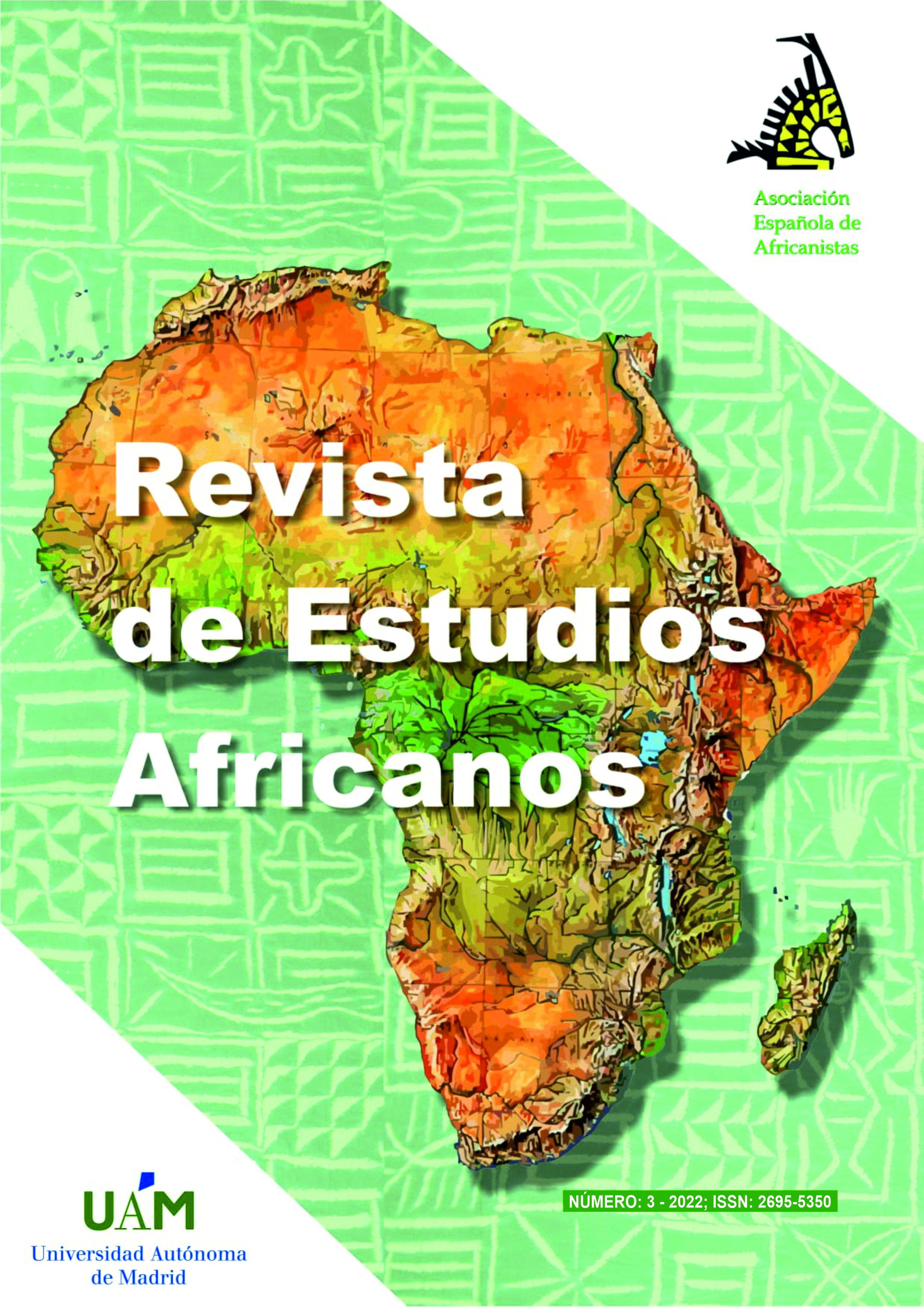Keywords:
patriarchy, feminism, Senegalese women, polygamyAbstract
In this article we tackle Ousmane Sembène’s work with the aim to elucidating the feminist ideal that runs through his work. To do this, we will examine three key aspects of the Senegalese society: religion, tradition and polygamy. The Senegalese writer estimates that these three elements contribute effectively to the maintenance of a radical gender inequality as they promote an archaic social model that encourages patriarchy. The female characters of Sembène challenge this model and by doing so they equally compromise the traditional values that modeled Senegalese society. Their liberation from these social imperatives is the beginning of a long road to emancipation that at the same time promotes a new feminine archetype.
Downloads
References
Arndt, Susan (2002): The Dynamics of African Feminism. Trenton, Africa World Press.
Champagne, John (1996): « A Feminist Just like Us? Teaching Mariama Bâ’s So Long a Letter», en College English, 58, 22-42.
Engelking, Tama (2008): « Senegalese Women, Education and Polygamy in “Une si longue letter” and “Faat Kiné » en The French Review, 82, 326-340.
Frank, Katherine. (1987): « Women without men: The feminist novel in Africa », en E. Jones y M. Palmer (dirs.), Women in African literature today. Trenton, African World Press, 14-34
Janis, Michael (2008): « Remembering Sembène: The Grandfather of African Feminism », en CLA Journal, 51, 248-264.
Lee, Sonia (1975): « The Awakening of the Self in the Heroines of Sembene Ousmane », en Studies in Contemporary Fiction, 17, 17-25.
Lindo, Karen. (2010): « Ousmane Sembene’s Hall of Men: (En)Gendering Everyday Heroism », en Research in African Literatures, 41, 109-124.
Linkhorn, Renée (1986) : « L’Afrique de Demain: Femmes en marche dans l’œuvre de Sembène Ousmane », en Modern Language Studies, 16, 69-76.
Mcdonald, Patrick (2015): « The Power of (Third World) Women: Liberation in God’s Bits of Wood », en Research in African Literatures, 46, 146-164.
Murphy, David (2001): Sembene: Imagining Alternatives in Film and Fiction. Trenton, Africa World Press.
Orlando, Valerie (2006): « The Afrocentric Paradigm and Womanist Agendas in Ousmane Sembene’s Faat Kiné (2001) », en Comparative Studies of South Asia, Africa and the Middle East, 26, 213-224.
Ortova, Jarmila (1969) : « Les femmes dans l’œuvre littéraire d’Ousmane Sembène », en Présence Africaine, 71, 69-77.
Pomevor, Ekpe (2008) : « Sembène Ousmane ou l’héroïsme féminin au quotidien », en Annales Aequatoria, 29, 365-379.
Rueda, Cristina. y al (2020) : La diversité sexuelle et de genre au Sénégal : Dakar et Thiès. Bilbao, Diputación Foral de Gipuzkoa.
Sembène, Ousmane (1957) : O Pays, mon beau peuple. Paris, Pocket.
Sembène, Ousmane (1960) : Les Bouts de bois de Dieu. Paris, Pocket.
Sembène, Ousmane (1962) : Voltaïque. Paris, Présence Africaine.
Sembène, Ousmane (1964) : L’Harmattan, Paris, Présence Africaine.
Sembène, Ousmane (1966) : Le Mandat. Paris, Présence Africaine.
Sembène, Ousmane (1987) : Niiwam. Paris, Présence Africaine.
Tidjani-Serpos, Nouréini (1978) : « Roman et société: la femme africaine comme personnage des «Bouts de bois de Dieu» de Sembène Ousmane », en Présence Africaine, 108, 122-137.
Touré Dia, Alioune (1979) : « Succès littéraire de Mariama Bâ pour son livre Une si longue lettre», en (Lire les femmes écrivains et les littératures africaines) URL : http://aflit.arts.uwa.edu.au/AMINABaLettre.html.

